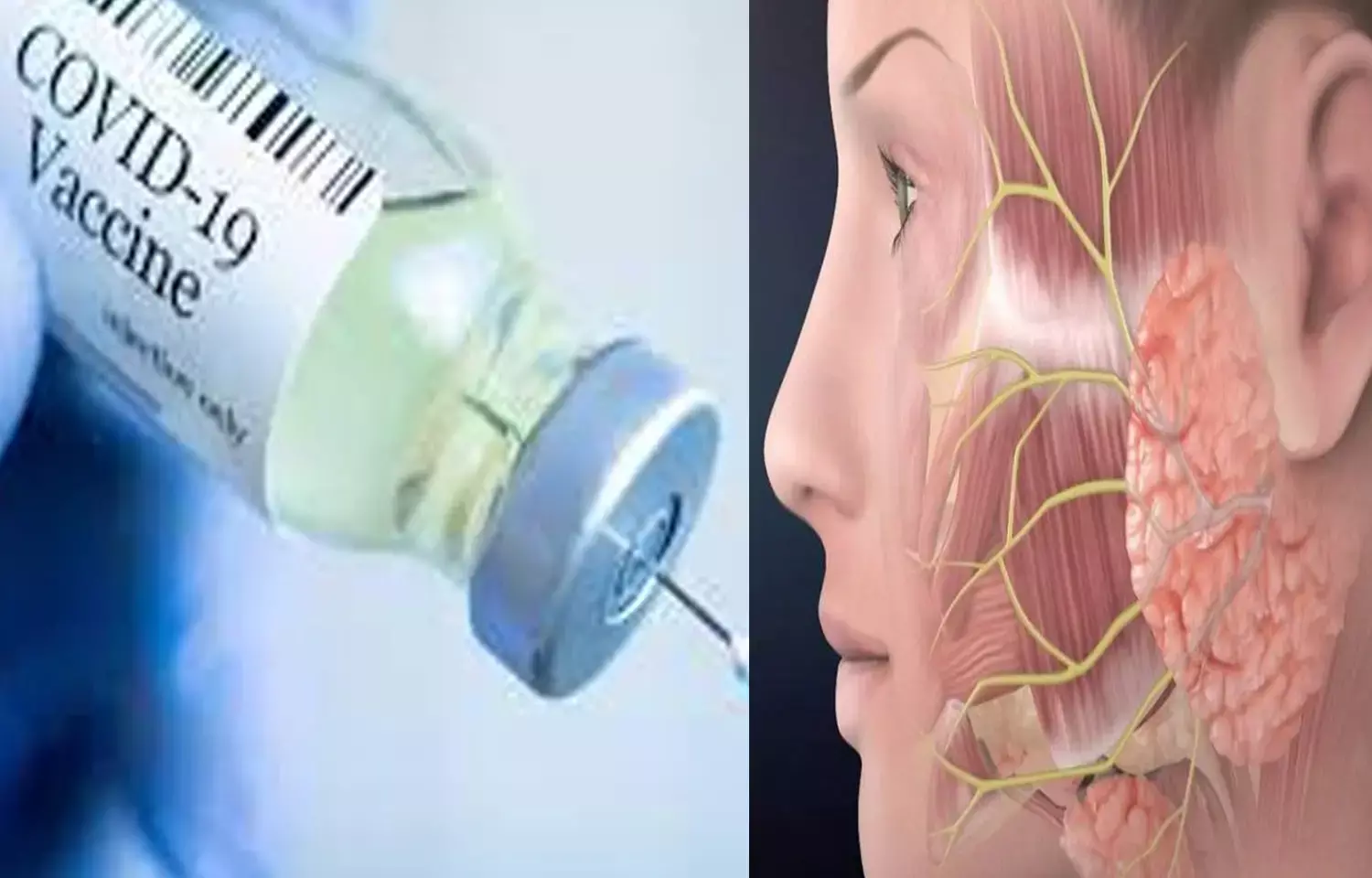- Home
- Medical news & Guidelines
- Anesthesiology
- Cardiology and CTVS
- Critical Care
- Dentistry
- Dermatology
- Diabetes and Endocrinology
- ENT
- Gastroenterology
- Medicine
- Nephrology
- Neurology
- Obstretics-Gynaecology
- Oncology
- Ophthalmology
- Orthopaedics
- Pediatrics-Neonatology
- Psychiatry
- Pulmonology
- Radiology
- Surgery
- Urology
- Laboratory Medicine
- Diet
- Nursing
- Paramedical
- Physiotherapy
- Health news
- Fact Check
- Bone Health Fact Check
- Brain Health Fact Check
- Cancer Related Fact Check
- Child Care Fact Check
- Dental and oral health fact check
- Diabetes and metabolic health fact check
- Diet and Nutrition Fact Check
- Eye and ENT Care Fact Check
- Fitness fact check
- Gut health fact check
- Heart health fact check
- Kidney health fact check
- Medical education fact check
- Men's health fact check
- Respiratory fact check
- Skin and hair care fact check
- Vaccine and Immunization fact check
- Women's health fact check
- AYUSH
- State News
- Andaman and Nicobar Islands
- Andhra Pradesh
- Arunachal Pradesh
- Assam
- Bihar
- Chandigarh
- Chattisgarh
- Dadra and Nagar Haveli
- Daman and Diu
- Delhi
- Goa
- Gujarat
- Haryana
- Himachal Pradesh
- Jammu & Kashmir
- Jharkhand
- Karnataka
- Kerala
- Ladakh
- Lakshadweep
- Madhya Pradesh
- Maharashtra
- Manipur
- Meghalaya
- Mizoram
- Nagaland
- Odisha
- Puducherry
- Punjab
- Rajasthan
- Sikkim
- Tamil Nadu
- Telangana
- Tripura
- Uttar Pradesh
- Uttrakhand
- West Bengal
- Medical Education
- Industry
Risk of Facial paralysis low with mRNA COVID-19 vaccines: WHO Data

France: Facial paralysis risk is very low in people administered with mRNA COVID-19 vaccines as compared to those given other viral vaccines, according to a recent research letter in JAMA Internal Medicine.
The study found that mRNA vaccines showed no higher safety signal for either narrowly or broadly defined facial paralysis in VigiBase.
During the pivotal phase 3 clinical trials of mRNA COVID-19 vaccines (Pfizer-BioNTech and Moderna COVID-19 vaccines), the researchers observed several cases of facial paralysis in the vaccine groups (7 of 35 654) compared with 1 case among people who received placebo (1 of 35 611). Although from clinical trials, a casual relationship could not be established, the US FDA recommended monitoring of vaccine recipients for facial paralysis. Lucie Renoud, Grenoble Alpes University Hospital, Grenoble, France, and colleagues thus explored this potential safety signal through a disproportionality analysis using the World Health Organization pharmacovigilance database, VigiBase.
For the purpose, the researchers performed 4 analyses with 2 control groups (all other viral vaccines and restricted to influenza vaccines) and 2 facial paralysis definitions (broad and narrow).
Key findings of the study include:
- Among the 133 883 cases of adverse drug reactions reported with mRNA COVID-19 vaccines in the World Health Organization pharmacovigilance database, a total of 844 (0.6%) facial paralysis-related events were identified, including 683 cases of facial paralysis, 168 cases of facial paresis, 25 cases of facial spasms, and 13 cases of facial nerve disorders (some adverse events were coreported in the same case).
- A total of 749 cases were reported with the Pfizer-BioNTech vaccine, and 95 cases were reported with the Moderna vaccine. Of the 844 patients, 572 were female (67.8%), and the median age was 49 years. The median (range) time to onset was 2 (0-79) days.
- The researchers identified 5734 (0.5%) and 2087 (0.7%) cases of facial paralysis among the 1 265 182 cases of adverse drug reactions reported with other viral vaccines and the 314 980 cases reported with influenza vaccines, respectively.
- The researchers did not detect any signal of disproportionality of facial paralysis for broad and narrow definitions vs other viral vaccines (IC025 = −0.01 and IC025 = −0.06) or influenza vaccines alone (IC025 = −1.36 and IC025 = −0.32).
"mRNA COVID-19 vaccines did not display a signal of facial paralysis when compared with other viral vaccines," wrote the authors. "Despite selective reporting and a potential delay in reporting and transferring cases among pharmacovigilance databases, the reporting rate of facial paralysis after mRNA COVID-19 vaccination found in the present study is not higher than that observed with other viral vaccines."
"To conclude, if an association between facial paralysis and mRNA COVID-19 vaccines exists, the risk is likely very low, as with other viral vaccines."
Reference:
The study titled, "Association of Facial Paralysis With mRNA COVID-19 Vaccines A Disproportionality Analysis Using the World Health Organization Pharmacovigilance Database," is published in JAMA Internal Medicine.
DOI: https://jamanetwork.com/journals/jamainternalmedicine/fullarticle/2779389
Dr Kamal Kant Kohli-MBBS, DTCD- a chest specialist with more than 30 years of practice and a flair for writing clinical articles, Dr Kamal Kant Kohli joined Medical Dialogues as a Chief Editor of Medical News. Besides writing articles, as an editor, he proofreads and verifies all the medical content published on Medical Dialogues including those coming from journals, studies,medical conferences,guidelines etc. Email: drkohli@medicaldialogues.in. Contact no. 011-43720751


